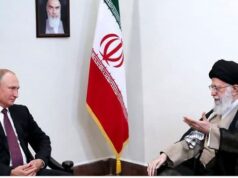
President Goodluck Jonathan has charged experts implementing the Millennium Development Goals in Nigeria to redesign their contents in line with the peculiar needs of the country.
The President gave this directive when he declared open, a Summit on the Millennium Development Goals (MDGs) and the Post 2015 Development Agenda in Abuja today. His address was delivered by Vice President Mohammed Namadi Sambo.
He stressed that for the Post-2015 Development Agenda to have the necessary impact on the development trajectory of nations across the world, the new set of goals needs to tackle the issues that were not addressed under the current framework, with poverty eradication, access to sustainable energy, infrastructural development, population demographics and governance at the center.
“It must be understood that these areas are crucial to the process and cannot be left out. The new framework must finish the current business of the MDGs. “If the current framework was the so-called ‘floor’ for development aspirations on which we set more ambitious and contextually appropriate policy aims, then the new framework must consider the most fundamental problems facing the least developed societies in the world. It must tackle those problems first. The formulation process needs to continue to be inclusive so that development realities and not academic conjectures are tackled.
“This inclusion has the added benefit of increasing community buy-in across the world. Being cognizant of these, I assure you of Government’s commitment to consider the outcomes of this Summit.”
He said that the Summit has come at a better time as we approach the MDGs deadline and mobilize resources to craft the Post-2015 Framework.
The President said that with less than 500 days to the MDGs deadline, United Nations Member States are in a sprint to formulate an inclusive successor agenda, taking into account current and emerging development challenges that slow down progress on the Internationally Agreed Development Goals (IADGS).
The President implored the participants to pay particular attention to the important issue of structural transformation in determining an inclusive Post-2015 Agenda, stressing the need to focus on the developmental transformation of Nigeria’s economy in order to attain sustainable human development over the medium term, as well as poverty reduction in the context of current systemic vulnerability. “It is imperative that you discuss in detail our dependence on primary commodity exports and suggest ways by which we can escape the subtle trap of low-value added and low productivity agriculture, which tend to worsen the culture of dependency. The recommendations from your deliberations may eventually align with this Administration’s blueprint to urgently transform Nigeria’s economy from one dominated by primary extraction and low value-added agriculture and services, to one in which high value is added through industrialization, infrastructural development and the application of technology, innovation, beneficiation and better linkages between sectors in the wider economy.”
President Jonathan said that the transformation of these sectors required a transfer of technology, innovation and a healthy and educated workforce living in freedom, adding that Economic transformation should be linked to the social conditions of society. “This is one of the reasons why Nigeria affirms the African Common Position on the Post-2015 Development Agenda which promotes universal and equitable access to health care, gender equality and women empowerment, quality education and human capital development, disaster risk reduction, poverty eradication, shelter provisioning, water resources management as well as the judicious harnessing of Nigeria’s burgeoning population demographics.”
President Jonathan said that he is being prudent to take stock and review the implementation of the MDGs Framework, the global community has been saddled with the unique responsibility of making the process as inclusive as possible in order to ensure that no one is left behind.
“Nigeria has therefore convened a number of consultations which has provided opportunity for diverse population groups, including Civil Society, the Parliament, academia, subnational governments, vulnerable population groups, among others, to become actively involved and own the process as we chart the next development agenda.”
He said that the will serve to follow up on all these previous efforts even as he commended the UN Country System and other parties that have partnered with Nigeria as it doggedly commit itself to shaping a people-centred post-2015 agenda.
“While paying due consideration to the drawbacks that limit the MDGs Agenda as a best practice, it is not mere rhetoric that the framework has helped to galvanize development planning and execution globally. “In order to domesticate the MDGs Agenda, Nigeria laid down the institutional, policy and financial frameworks to implement and accelerate the attainment of these Goals. Nigeria has firmly demonstrated commitment by dedicating the entirety of the Debt Relief Gains (DRGs) negotiated from the Paris Club to MDGs interventions in addition to establishing an Office within the Presidency which serves as the secretariat to the high level Presidential Committee on the Assessment and Monitoring of the MDGs. Using the DRGs, Nigeria has put in place innovative programs such as the Conditional Grants Scheme and various social protection programmes aimed at providing high impact interventions at the grassroots where they are most needed.” President Jonathan said that the Countdown Strategy, the Nigeria’s blueprint to accelerate the attainment of the MDGs which integrates the core principles of the Vision 20:2020 and the National Implementation Plan have continued to guide the implementation of the MDGs in Nigeria.
He admitted that progress has been mixed, but that there has been remarkable improvement in the MDGs indicators when compared to baseline statistics.
“To start with, the United Nations Food and Agriculture Organization recently recognized Nigeria for halving the proportion of those who suffer from hunger way ahead of the 2015 deadline. “Government is taking proactive steps to stem the challenges that keep children out of school in some parts of the country. Nigeria has achieved the gender parity targets at primary and secondary education levels. We continue to provide incentives to ensure sustained female school participation.”
He said that significant progress has been made in the drive to attain the health MDGs, adding that under-five deaths declined from 157 deaths per 1,000 live births in 2008, to 94 in 2012.
This trend, he said, is similar for infant mortality rate of 61 per 1,000 live births, saying that it needs to reduce by 50% in order to meet the 2015 target. Nigeria, Jonathan added, has continued to reduce the Maternal Mortality Ratio, saying that in 1990, it was estimated that 1,000 mothers died per 100,000 live births; in 2008 this declined to 545 and in 2012, the figure was 350. “Progress has been driven in a major part by the Midwife Services Scheme, among others, which has seen the reversal of the previously negative trend in the percentage of skilled health personnel attending to births.
“Furthermore, there is continuation in the fall of HIV prevalence, from figures as high as 5.8 to 4.1 in 2012. The prevalence in the general population is now 3.5. This falling trend satisfies the criteria for the attainment of Target 6A.
“Nigeria is implementing a comprehensive HIV/AIDs plan to reduce the incidence of mother to child transmission in order to get to zero.” President Jonathan said that whilst there has been remarkable improvement in many MDGs indicators, Government, in collaboration with stakeholders, is mobilizing the necessary attention needed to focus on Goals lagging behind in order to bring about the desired change.
According to him, in accordance with the dual directive of the UN Secretary General to accelerate progress on the MDGs in the little time remaining while aggregating citizens’ demands for the post-MDGs era, Nigeria deployed the United Nations MDGs Acceleration Framework (MAF) with focus on reducing the burden of maternal mortality.
This tool, he said, built on the success of policies such as the Midwives Service Scheme, Community Health Extension Workers Programme, the Village Health Workers Scheme and the Saving One Million Lives Initiative.
He said that the focus is not only on improving the efficiency of progress of Goal but that efforts are being made across board with other initiatives such as the use of a groundbreaking mobile money technology to drive the scale up of Conditional Cash Transfers being implemented across the Federation.
“This CCT Scheme, designed to stimulate demand for services, targets education, basic health care, as well as the transfer of agricultural enterprise, being a multi-faceted program implemented in the run up to the 2015 deadline.
“As demonstrated by the foregoing, the MDGs framework has helped to focus international and local attention on improving the lives of those most vulnerable in society. “We must now increase our efforts in these remaining 500 days to complete what was started under the MDGs Agenda. I have been informed that the recommendation to complete the “unfinished business” of the MDGs was indeed well articulated at the different stages of the National Consultations on the Post-2015 Development Framework held in Nigeria. Evidence gathered from aggregating citizens’ aspirations clearly shows that there is broad consensus that the current MDGs must not be sidelined. “Poverty eradication must remain in focus as we integrate the economic, social and environmental dimensions of development in an inclusive programme.” [myad]






